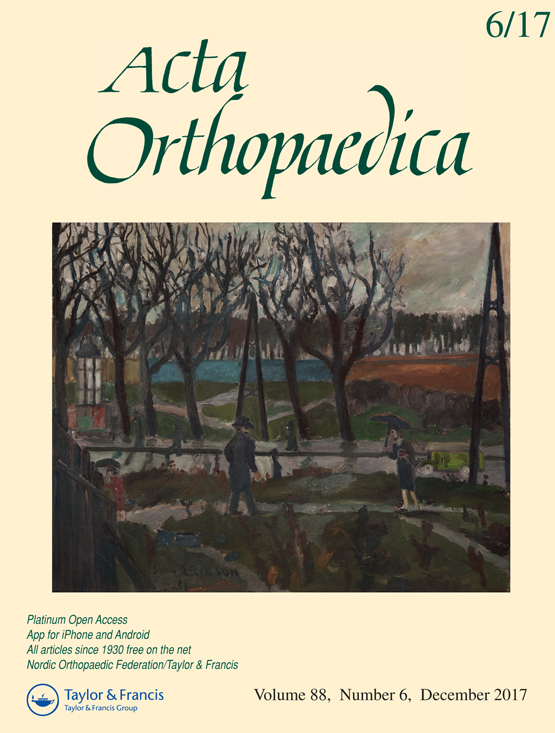The Cox model is better than the Fine and Gray model when estimating relative revision risks from arthroplasty register data
DOI:
https://doi.org/10.1080/17453674.2017.1361130Abstract
Background and purpose — Analysis of the revision-free survival of knee and hip prostheses has traditionally been performed using Kaplan–Meier analysis and Cox regression. The competing risk problem that is related to patients who die during follow-up has recently been increasingly discussed, not least with regard to the problem of choosing a suitable statistical method for the analysis. We compared the results from analyses of Cox models and Fine and Gray models. Methods — We used data simulation based on parameter estimates from the Swedish Knee Arthroplasty Register and assessed hypothetical effects of the studied risk factors. Results — The Cox model provided more adequate results. Interpretation — The parameter estimates from the Fine and Gray model can be misleading if interpreted in terms of relative risk.Downloads
Download data is not yet available.
Downloads
Published
2017-11-02
How to Cite
Ranstam, J., & Robertsson, O. (2017). The Cox model is better than the Fine and Gray model when estimating relative revision risks from arthroplasty register data. Acta Orthopaedica, 88(6), 578–580. https://doi.org/10.1080/17453674.2017.1361130
Issue
Section
Articles
License

This work is licensed under a Creative Commons Attribution-NonCommercial 3.0 Unported License.
Acta Orthopaedica (Scandinavica) content is available freely online as from volume 1, 1930. The journal owner owns the copyright for all material published until volume 80, 2009. As of June 2009, the journal has however been published fully Open Access, meaning the authors retain copyright to their work. As of June 2009, articles have been published under CC-BY-NC or CC-BY licenses, unless otherwise specified.







